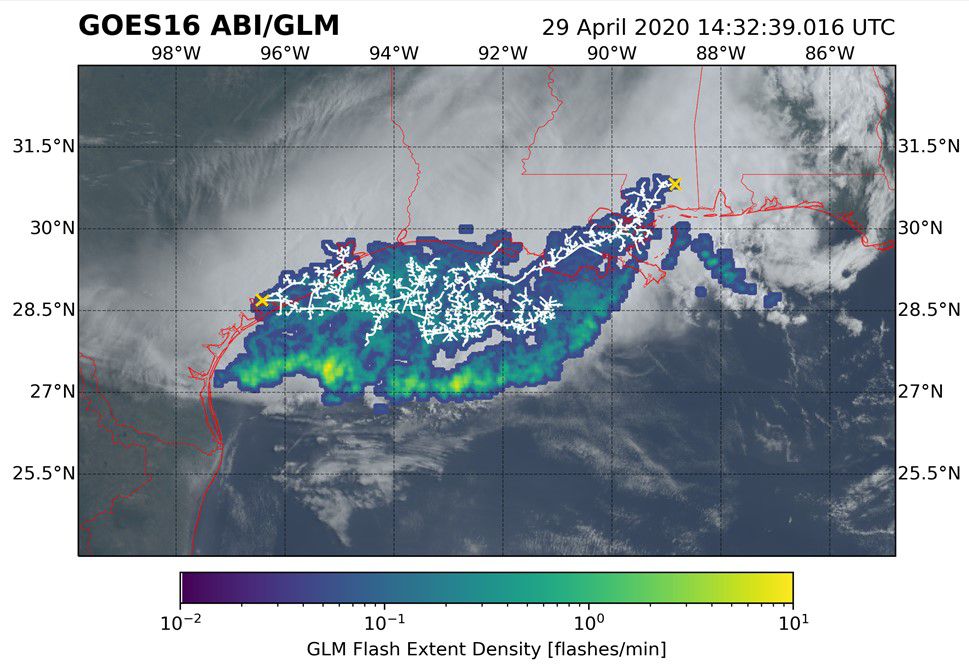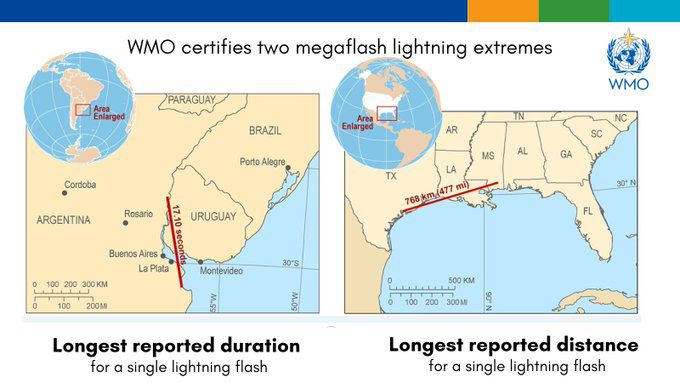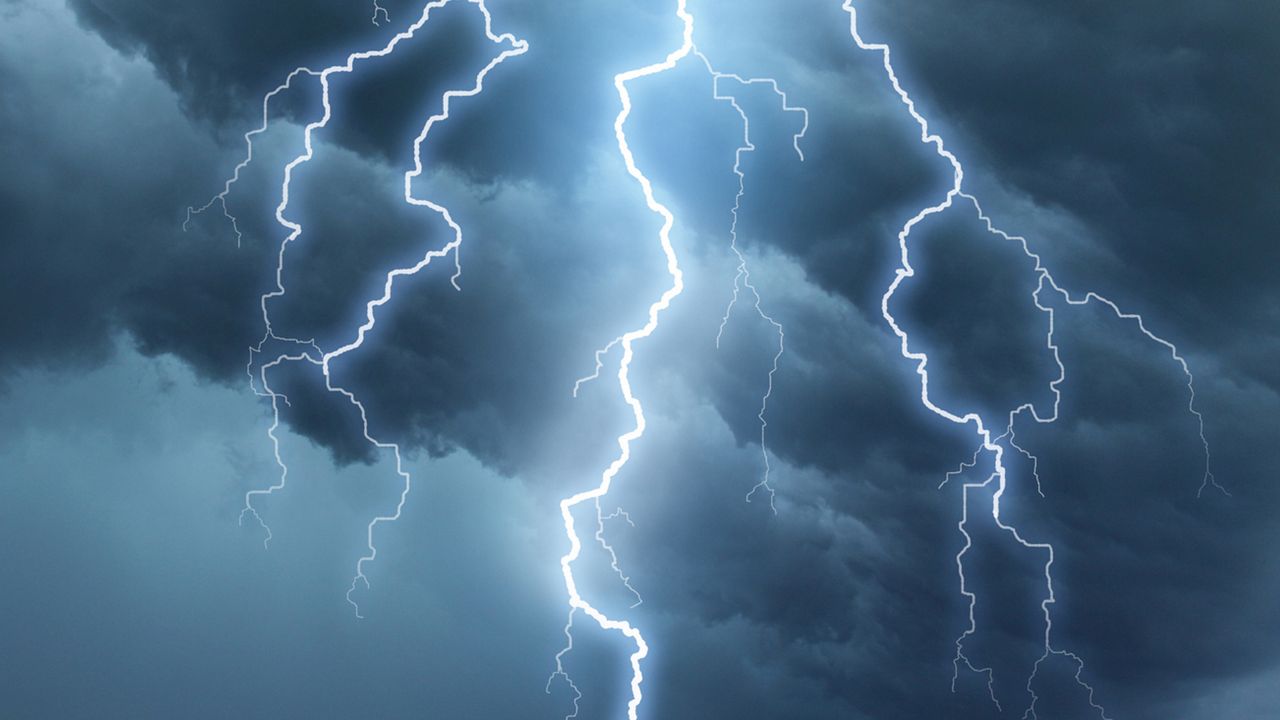A single flash of lightning covered an area so large that it earned a spot in the record books. The megaflash lightning bolt spanned across three states along the Gulf of Mexico.
A recent analysis from the World Meteorological Organization (WMO) found that a single flash of lightning along the northern Gulf Coast spanned 477 miles across, breaking a world record.
This megaflash of lightning lit up an area stretching from Texas to Mississippi. To put it into perspective, it's like seeing a single flash of lightning spanning from New York City to Columbus, Ohio.

A single flash of lightning is a "megaflash" when it extends hundreds of feet horizontally. Typically, megaflashes occur with a mesoscale convective systems (MCS), which is a large, organized cluster of thunderstorms that can spread across an entire state and last over 12 hours.
The storms that produced this megaflash occurred with an MCS that approached the Gulf of Mexico on April 29, 2020.
These storms produced a lot of wind and hail damage in the area as they were moving off the coast, including a gust to 82 mph that was measured by an offshore oil platform.
The WMO declared it broke a world record for the longest flash of lightning ever recorded. The previous record was from a lightning flash in southern Brazil that spanned 440.6 miles across in October 2018.

This wasn't the only megaflash record certified from the World Meteorological Organization. Another flash of lightning from a thunderstorm over Uruguay and northern Argentina broke a world record for longest duration of a single flash.
A lightning flash is usually very brief, just microseconds. However, this flash of lightning lasted over 17 seconds! It breaks the previous record for longest duration of a single flash, which was 16.73 seconds, recorded over the same region in 2019.
“These are extraordinary records from single lightning flash events. Environmental extremes are living measurements of the power of nature, as well as scientific progress in being able to make such assessments. It is likely that even greater extremes still exist, and that we will be able to observe them as lightning detection technology improves,” said Professor Randall Cerveny, rapporteur of Weather and Climate Extremes for WMO.
We credit new satellite technology for the improved ability to detect extreme events, such as a megaflash.








